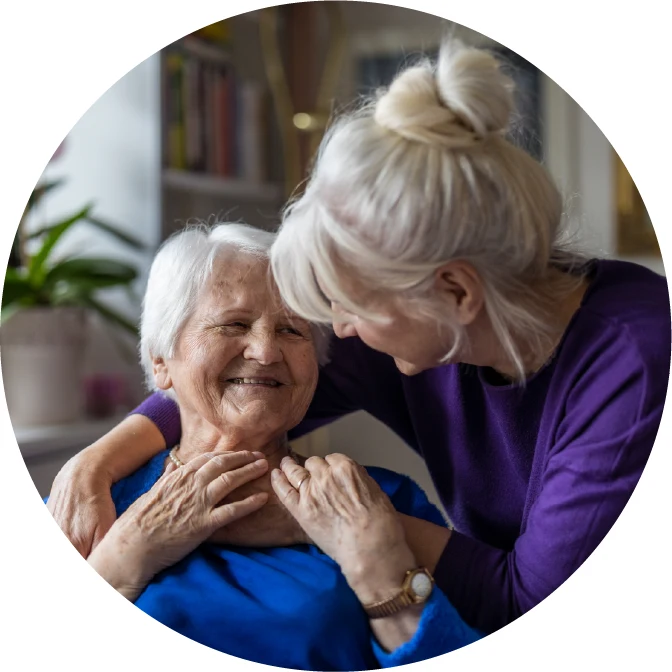Beyond Caregiving: Finding Balance in Unexpected Roles

Facilitators
Group Size
Location
Next Date & Time
Thursdays, 6:00pm – 7:30pm
April 2 to April 23
Session breakdown
Each 90-minute session blends education, meaningful reflection, and heartfelt group dialogue. Together, we’ll explore the complex emotions of caregiving, from anticipatory grief to caregiver guilt, while also developing practical tools to navigate life’s unexpected turns and to honour your own needs alongside those you care for.
Week 1: Loss & Grief
We’ll share and reflect on the many forms of grief caregivers experience, such as mourning the life you had before caregiving and grieving the changes in the person you care for. We’ll explore how grief can show up in different ways, such as guilt, anxiety, helplessness, irritability, anger, or frustration, and create space for stories and experiences that help us cope with the ongoing losses of caregiving.
Week 2: Coping with Unexpected Changes
Few people plan to become caregivers. Because health changes are often unpredictable, the responsibilities of caregiving can arrive suddenly and impact many areas of life. In this session, we’ll discuss practical skills for navigating unanticipated responsibilities and strategies to bring balance when life shifts unexpectedly.
Week 3: When Caregiving Becomes Too Much
Caring deeply can sometimes lead to emotional strain. Too much empathy without boundaries can contribute to burnout and distress. This week, we’ll focus on managing expectations, your own, your loved one’s, and those of your wider circle of care, so that caregiving remains sustainable and supportive for everyone involved.
Week 4: Practicing Mindful Self-Compassion
In caregiving, mindful self-compassion is not a luxury, it’s a necessity. When caregivers tend to their own well-being, they’re better able to manage stress and stay grounded in difficult moments. In our closing session, we’ll practice small, intentional self-compassion tools that can ripple outward, supporting resilience and mental health over time.
Common Questions
What is a support group?
Support groups are made up of people who share common challenges. These groups are focused on providing education, resources and tools, with the overall goal of helping you to cope. They provide a safe place for you to express your thoughts and feelings, and to share your experiences if you feel comfortable. Groups often provide reassurance and encouragement. There’s something truly unique about surrounding yourself with others who are experiencing similar challenges as you. Group members often walk away feeling stronger, more capable and hopeful about managing the difficulties that brought them to the group.
Do I have to be a client at Women's Mental Health to attend the group?
Everyone is welcome! You do not need to be a current client in order to join any of the groups we offer.
Is everything talked about confidential?
Confidentiality is a key to the effectiveness of the counselling process, so the personal information you share in counselling will be kept confidential. There are, however, some exceptions to the counsellor’s duty of confidentiality: if there is a concern of imminent harm to you or another (e.g., threats of suicide or homicide), if a child is in need of protection (e.g., abuse, neglect, exposure to domestic violence) or if your file has been subpoenaed for a court case.
What is the cancellation policy?
We understand that plans change. To help keep groups running smoothly, please let us know at least 48 hours before the first session if you need to withdraw. With less than 48 hours’ notice or if you do not attend the first session, the full group fee will be charged to the card on file, and we’ll offer your spot to someone on the waitlist.

